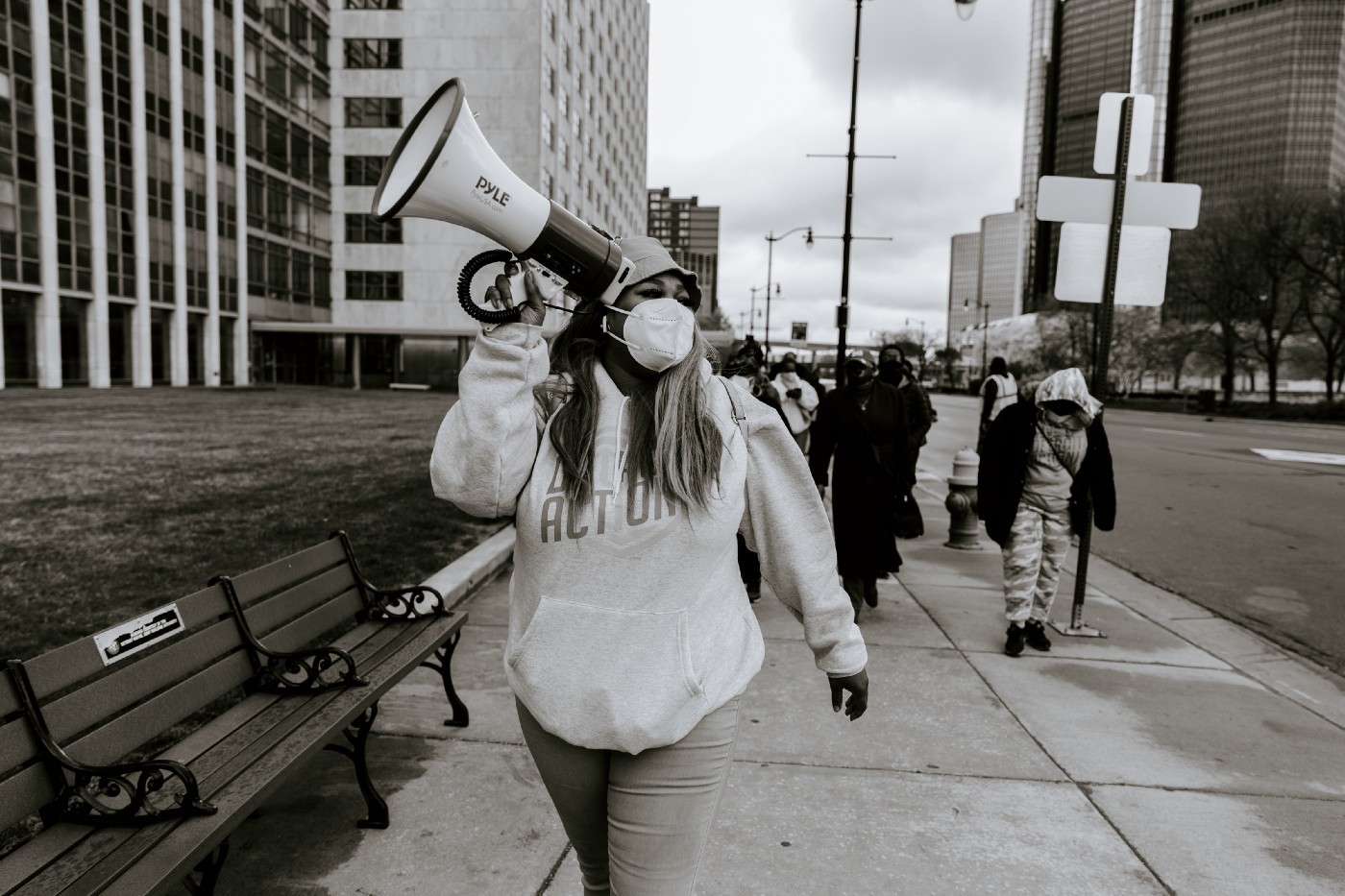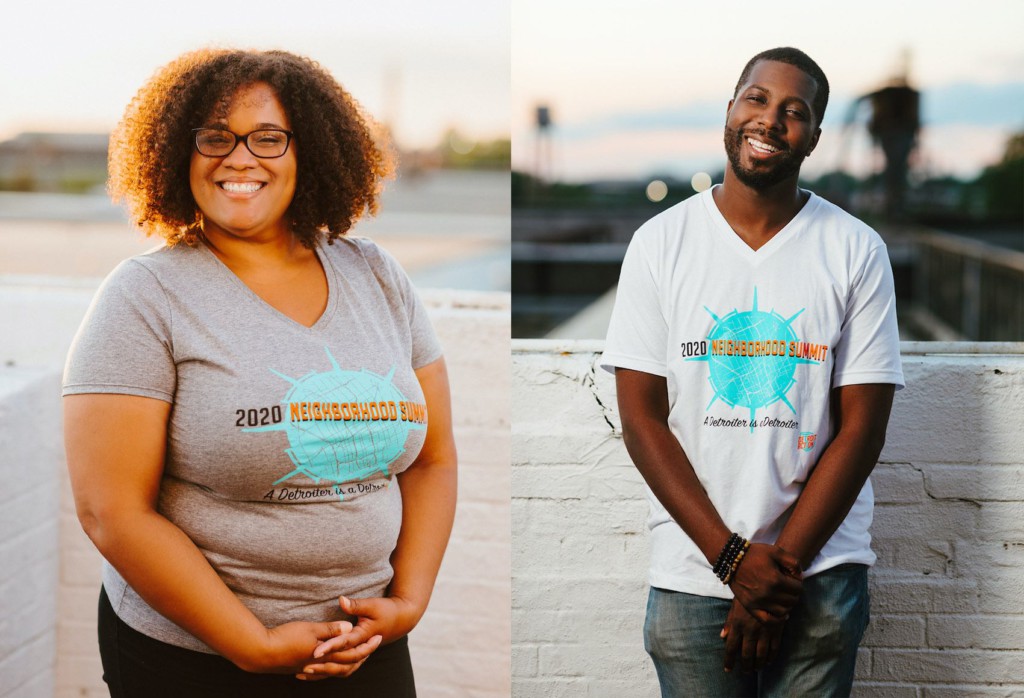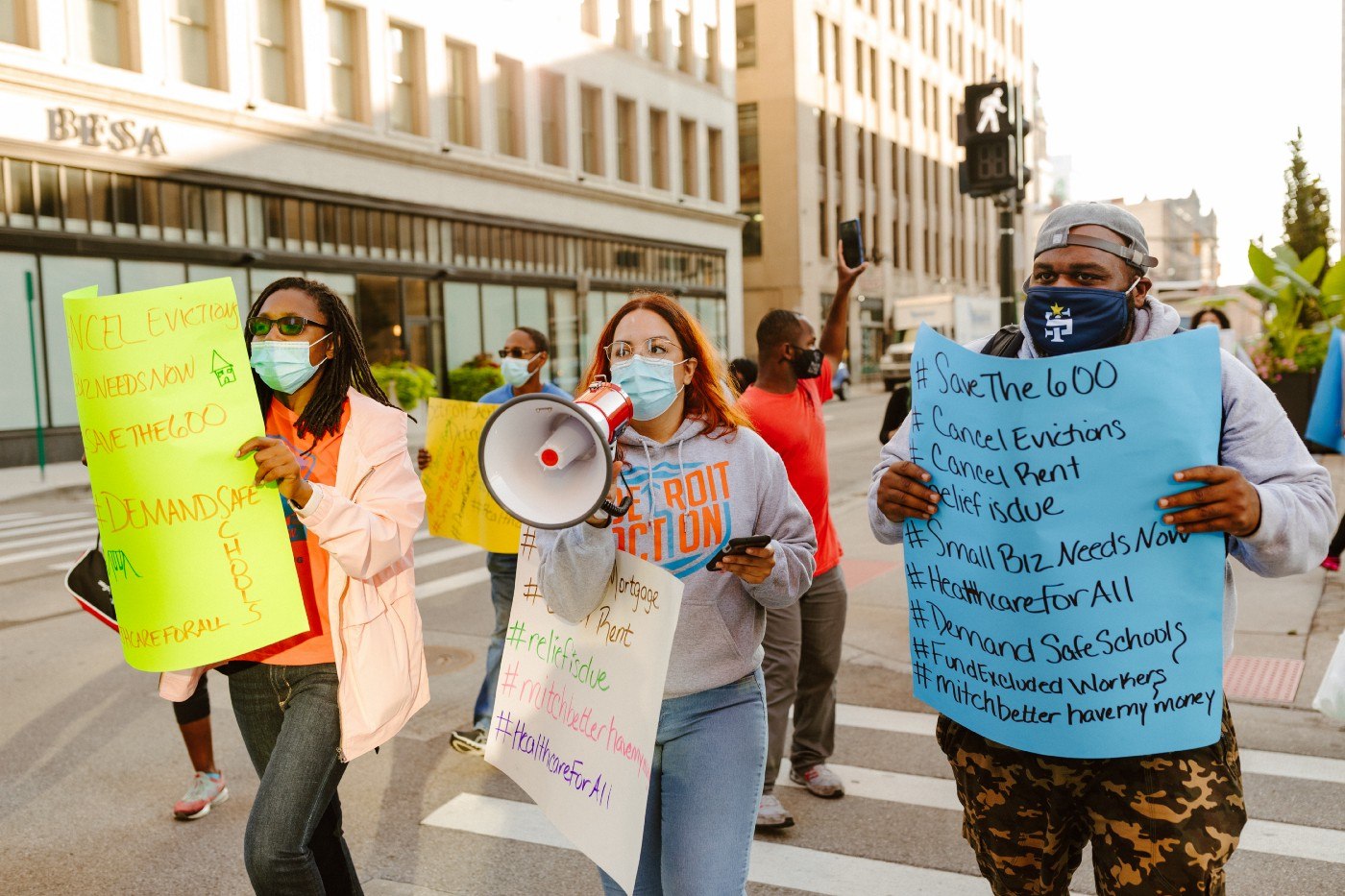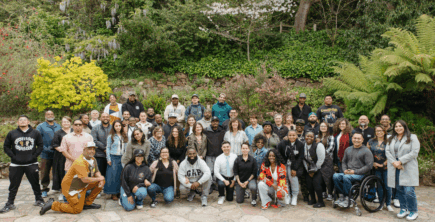
LGBT

Building power within a community based on that community’s needs takes intentional, painstaking effort in relationship building. It takes open-mindedness and empathy, as well as a commitment to seeing things through.
Co-executive directors Jennifer Disla and Branden Snyder, along with their teams, are doing that work at Detroit Action Education Fund, a fiscally sponsored project of Tides Center.
The grassroots organization is a member-led collective that’s working to foster power and agency in the Detroit community by offering leadership development workshops, internships, nonpartisan voter education and mobilization drives, and collaboration with a wide variety of organizations working toward the same goals.

Jennifer Disla and Branden Snyder, Co-Executive Directors of Detroit Action
Disla and Snyder’s personal experiences in navigating social justice issues and witnessing struggles have motivated them to lead this effort. They’re addressing the community’s most urgent problems as they arise — housing, jobs, healthcare, education, voting — and working closely with community members to identify needs and solutions.
Their approach takes the term “civic engagement” to a whole new level. They meet community members where they are, offering multiple ways for them to connect to the issues communities most care about. We asked how their past experiences have informed their work, and how they envision Detroit Action’s position in the community.
What turning point or specific moment led you to this work?
Jennifer Disla: In 2008, I found myself in a position where I had a chronic medical condition and needed access to healthcare and personally experienced how difficult it was to obtain. So I got involved with the Healthcare for American Now Campaign in Missouri to educate voters and learned how much impact educating voters can have and how it can come into fruition. After spending 10 years in labor justice, I worked with Missouri Jobs with Justice on the Medicaid expansion and with the Organization for Black Struggle. I saw again and again how an issue that impacted people could impact democracy.
Branden Snyder: Throughout my college career, I was interested in learning about organizing and voter outreach work. During my senior year, I was volunteering for a community organization in Detroit that was working with homeless folks. One of the most galvanizing moments at that organization that led me to this point was when I got arrested and got locked up in jail. The people who I met there were 16- to 21-year-old Black men, and the jail was in the third wealthiest county in Michigan. The thing that struck me was how systems control proximities and create barriers in our communities. One of my mentors reminded me of the “babies in the river” parable: practices such as law, education, advocacy, and charity focus on sending folks on their way, while civic engagement and organizing asks “why are babies in the river in the first place” and holds people and systems accountable.

“The more deeply rooted we are in the neighborhood, the stronger our programs are.” (Photo © Detroit Action)
Civic engagement is an important part of Detroit Action’s funding and programs. What would you say makes your approach unique or essential?
Snyder: Innovation. We try to do a number of things that connect the spirit of community organizing to modern tactics and tools. The core of our work is relational organizing and building committees, but we also have a service mutual aid program that engages working class folks. We run and fund a year-round field program to engage people and connect them to issues they care about. Being able to create multiple doorways is how we think about civic engagement. It’s not just for Election Day, it’s beyond that.
Disla: During the pandemic, we’ve really centered on issues that impact our members, such as the recent flooding incident and water infrastructure, the eviction crisis, and access to jobs. This makes us unique because our members’ voices are the central point in our engagement programs. We look to their leadership in talking to their communities — their neighbors, their families, their friends. The more deeply rooted we are in the neighborhood, the stronger our programs are.
What is your co-leadership model and why is it so critical for your organization?
Disla: We know the long-haul fight is much longer, and sustainability is important. When we thought of the executive director position and all the work it entails, it was important to create a sustainable structure for people that hold these demanding positions. Organizations aiming for the long-term need to prioritize a strong foundation so that when we’re decades into the work, we’re still fostering innovation, creativity, and capacity for someone to lead.
Snyder: In Michigan and at this moment, there’s an important opportunity to engage Black people around certain issues. For me, this means being able to sustain the organization, coalescing our expertise as co-directors, bringing together the internal and the external, and advancing the goals of our organization is key. I have expertise in leadership development, while Jennifer’s expertise in outreach gives us an opportunity to grow our organization and movement here in Michigan. We want to be a team with a solid base of working class folks, fighting for the issues they care about.

“The people closest to the problem are the people closest to the solution.” (Photo © Detroit Action)
What values guide you when working with your team or engaging with external partners?
Disla: Combating liberalism and leaning into principled struggle. Sometimes people shy away from conflict, but it’s among our differences where we sharpen each other. When working with the community, I’ve also learned that the ones closest to the ground are the experts. For example, during my first contract campaign at SEIU Local 1, we knew that healthcare was important for workers. As an advocate for human rights, employers paying for healthcare is something I strongly believe in and want employees to have. However, in pushing healthcare forward, we may have caused significant stress on the union’s members and we’d lose other benefits. The leadership chose to hold off for a future cycle, and they were absolutely right. We won healthcare in the next cycle and the union membership remains strong.
Snyder: There are many, but I think a key one is moving at the speed of trust. And I also agree with Disla, the people closest to the problem are the people closest to the solution.
What are you most excited about in the next few months? How might readers get involved?
Disla: Detroit Action Education Fund will support public education events, including with community leaders. We’re looking to engage folks in districts and our clerk race about our values on housing and jobs. The best way to get involved is to visit our website and social media outlets for upcoming activities.
Snyder: Central to that is our issue work around jobs, housing, criminal justice, public education, and democracy. People can learn about the issues we’re working on, attend our events, and plug into what we’re doing in Detroit. People can join our committees, come to our membership meetings, and plug into our campaigns.

LGBT

Corporate Partners

Philanthropy

Read the stories and hear the voices of social change leaders fighting for justice.